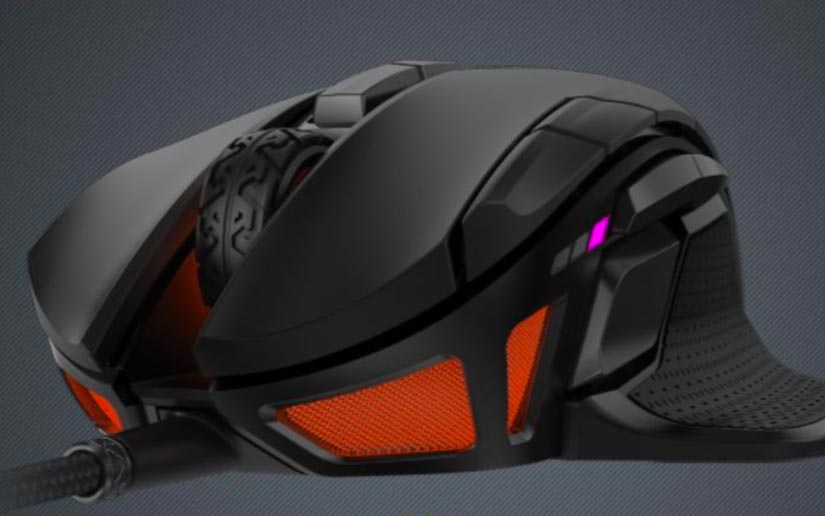Tom's Guide Verdict
While the design is a bit too familiar, the Corsair Nightsword RGB is a good large gaming mouse with tunable weights.
Pros
- +
Comfortable grip
- +
Good performance
- +
Decent software
Cons
- -
Fiddly weights
- -
Derivative design
- -
Somewhat expensive
Why you can trust Tom's Guide
A few years ago, Logitech debuted the G502 Proteus Core, which quickly became one of our favorite gaming mice. The peripheral featured an angular design, a large thumb rest and a compartment for tunable weights, all available for $80 in a wired configuration. Now, the Corsair Nightsword RGB ($80) has arrived, and it shares an awful lot of features with the G502. The design, thumb rest and weights are all intact — as are the general button layout and the price.
Whether the Nightsword is an homage or a copycat largely depends on how much you like its extra bells and whistles. The lighting is a little more robust than the G502, there's more textured surface area and the mouse overall is a bit bigger. But beyond that, it's hard not to feel like we've seen this design before — and, as I pointed out in my G502 Wireless review, there have been better mouse designs since then.
None of this takes away from the fact that the Nightsword is fundamentally a good mouse, however. It's comfortable, versatile and capable. You get a high-quality sensor, plenty of buttons and robust software. It's just something you've seen before, at exactly the same price.
Design
As stated above, the Nightsword looks extremely similar to the G502. If you've seen that mouse before, imagine the G502 made for a slightly bigger hand, and you should get a pretty good picture in your head. The Nightsword is a right-handed ergonomic mouse that measures 5.1 x 3.4 x 1.7 inches, and has a textured thumb rest, palm rest and grip for the outermost fingers. If you've got large hands, you can play comfortably with either a palm or claw grip.
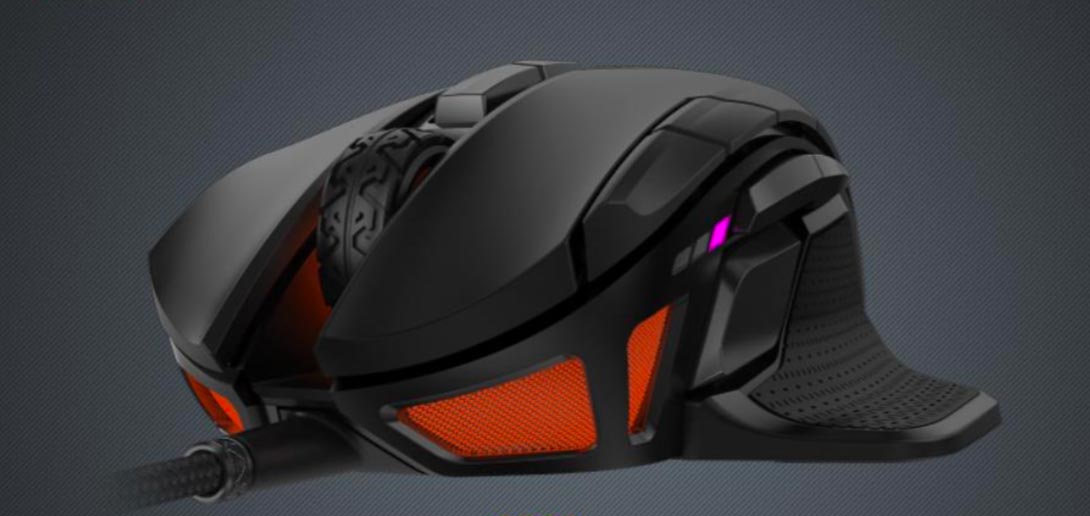
The button layout is also sensible, if familiar. There's a left click button, a right click button and a clickable scroll wheel. Beneath that, there are two buttons that, by default, shift profiles. (The Nightsword has three onboard profiles, or as many as you care to program into a computer.) On the top of the left button, there are two smaller buttons to adjust dots-per-inch (DPI) sensitivity, and on the side, there are two small thumb buttons as well as a larger "sniper" button right below them. It looks almost identical to the G502's button layout, save for the fact that you can't adjust the scroll wheel's resistance.
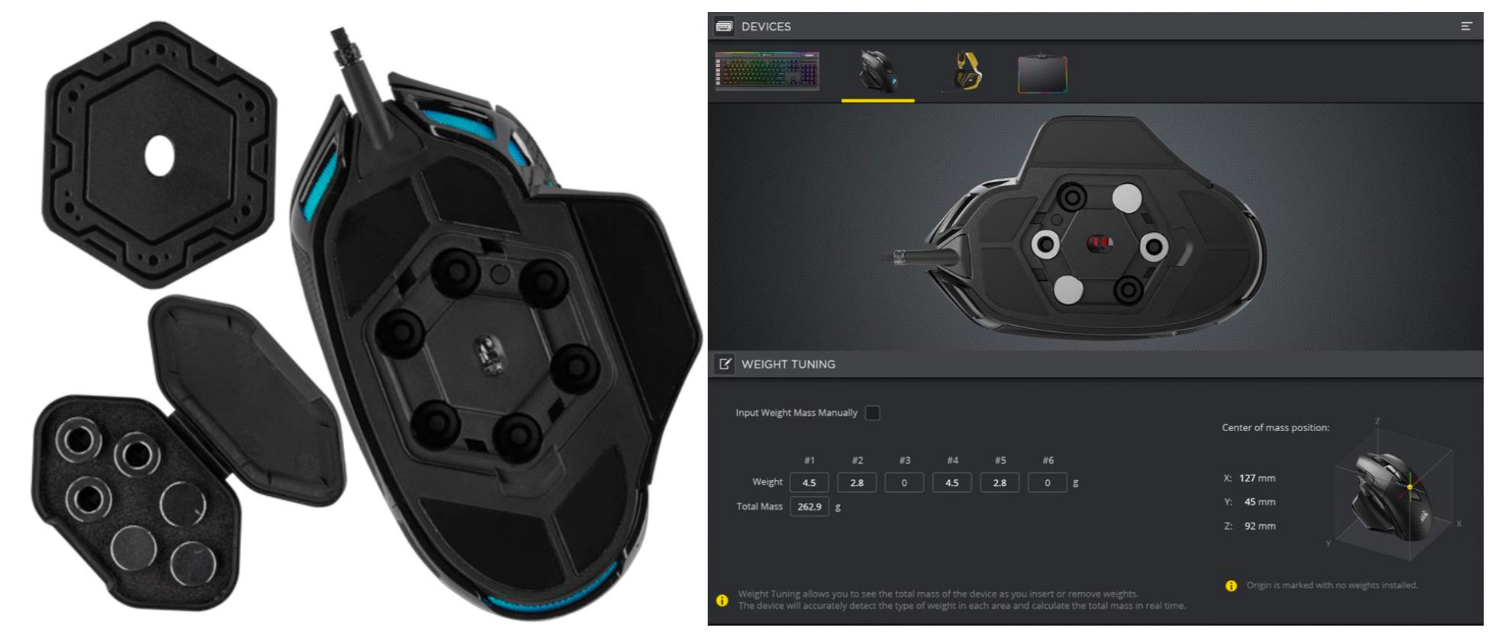
Then, if you flip the Nightsword over, you'll find a compartment to store tunable weights. Again, the G502 has a similar compartment, except that Logitech holds its cover in place with magnets; Corsair holds the cover in place with four little nubs that aren't that easy to dislodge. The first time I opened the weights compartment, I had to leverage it with a key, and I was worried I might break the whole apparatus. The weights themselves are easy to add and remove, though, and can adjust the mouse's overall weight between 4.2 and 5.0 ounces.
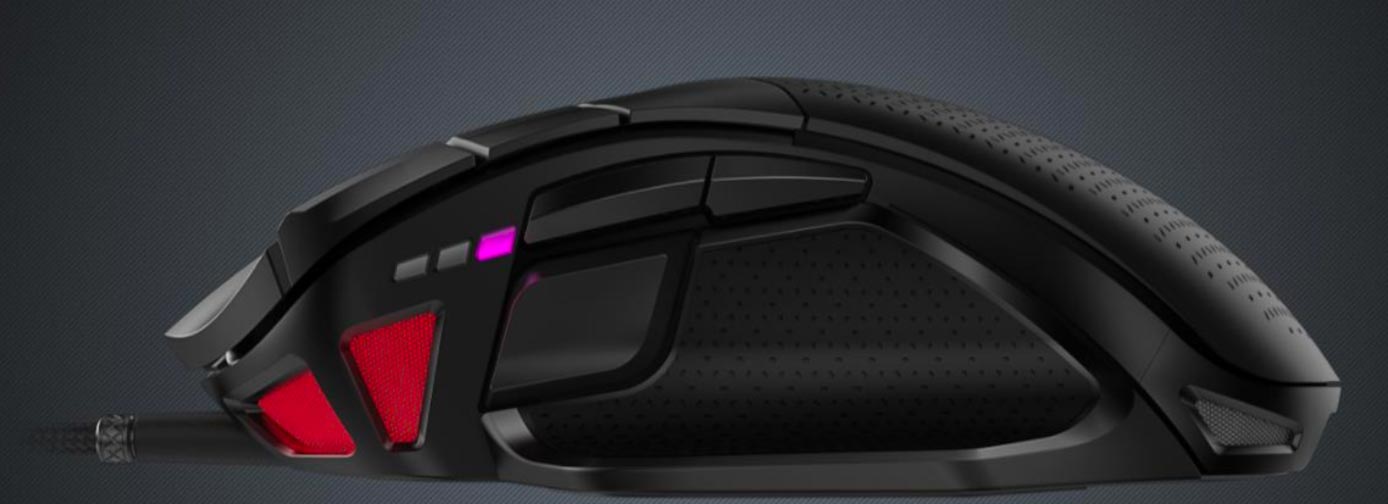
The Nightsword has a smart, comfortable design, even if the weight system is a little arcane. It's just uncomfortably familiar in a few key ways.
Features
The Nightsword runs on the Corsair Utility Engine (iCUE) software, which is a bit labyrinthine, but extremely functional overall. With it, you can adjust the DPI (up to 18,000), create profiles for individual games, play with the RGB lighting, program buttons and more. As the Nightsword is a premium mouse, you can also tune it to a variety of different surfaces, and even automatically keep track of the weights you add and remove.
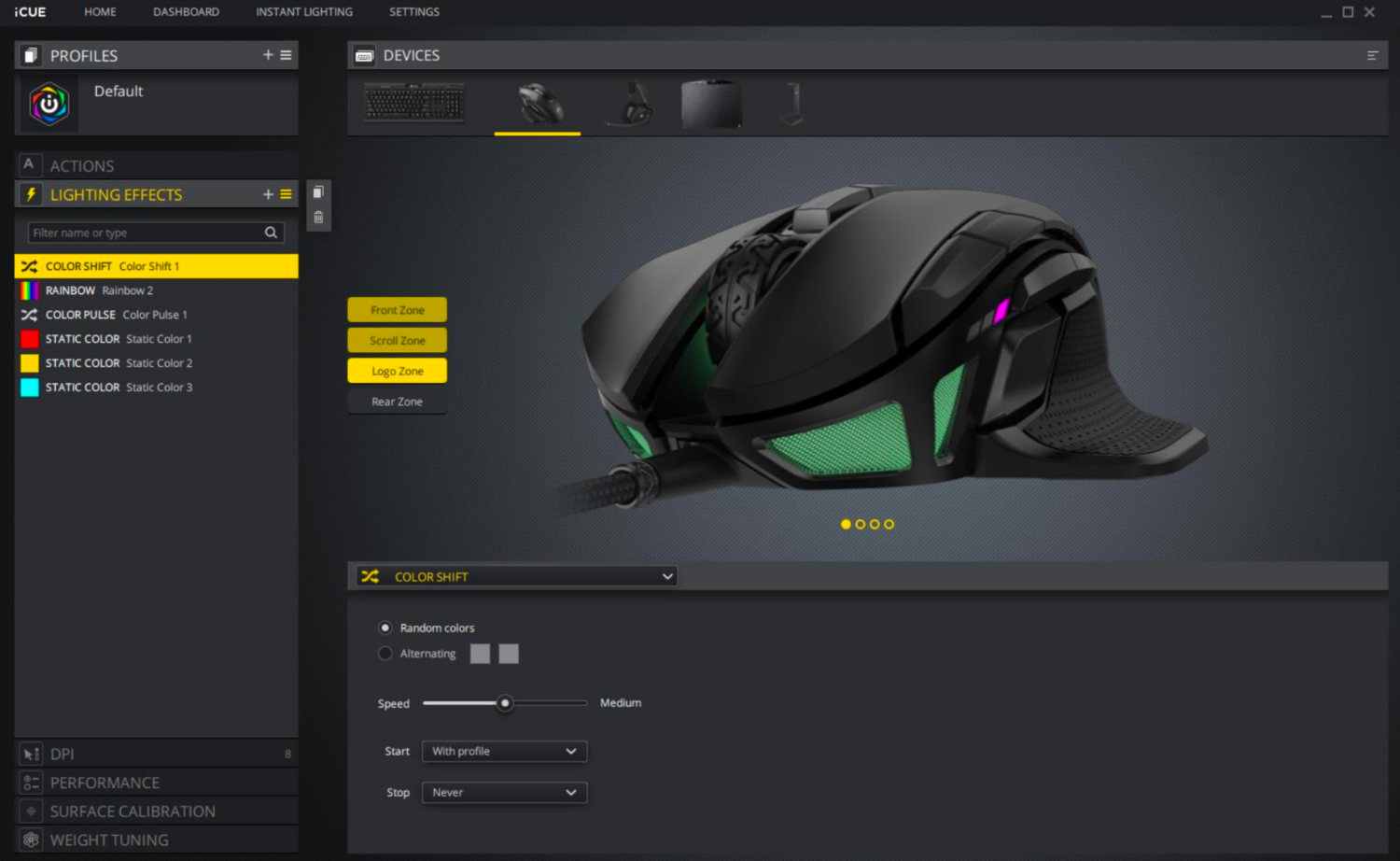
As far as lighting goes, there are two distinct zones: a Corsair logo on the palm rest, and a DPI indicator on the right. The DPI indicator is one area where the Nightsword holds a clear advantage over the G502, especially since it can change color when you activate the sniper mode. I'm not sure why you can only program two colors in this zone, however; it would have been very helpful to program each DPI level with a different color, as you can do on some other Corsair mice.
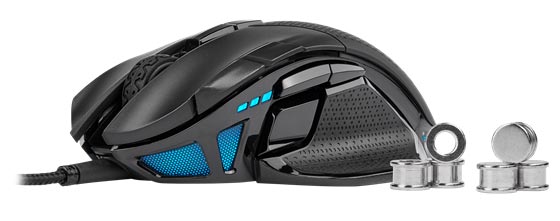
The weights are the other defining feature of the Nightsword, and they've got their ups and downs, as described above. If you like one particular weight and never want to change it, you'll be fine; if you tweak weights often, you're in for a tedious process.
Performance
I tested the Nightsword with a variety of different PC games. Like other Corsair mice, it performed extremely well across the board. Zipping across an Overwatch battlefield as Tracer was just as delightful as pummeling Protoss forces with a Zerg army in StarCraft: Remastered.
MORE: Best Gaming Mouse - Top Mice for FPS, MMO and Wireless Gaming
The Nightsword was precise enough to lead a party in Baldur's Gate: Enhanced Edition, or grind out Horde quests in World of Warcraft. It has enough buttons to set up MMO macros, but a conservative enough design that you can eschew extra said buttons entirely if you prefer.
Bottom Line
The Nightsword RGB is an extremely familiar mouse - but it's extremely familiar in a good way. Even though it bears a striking resemblance to an earlier design from another company, that design has held up well over the past few years. Still, $80 is a fairly high asking price, especially since the G502 is often available for $50, and arguably comes with better software.
If you're already invested in the Corsair ecosystem and want a tunable mouse, the Nightsword RGB will fit the bill. Otherwise, the G502 is still the way to go for wired models.
Credit: Corsair
Marshall Honorof is a senior editor for Tom's Guide, overseeing the site's coverage of gaming hardware and software. He comes from a science writing background, having studied paleomammalogy, biological anthropology, and the history of science and technology. After hours, you can find him practicing taekwondo or doing deep dives on classic sci-fi.
